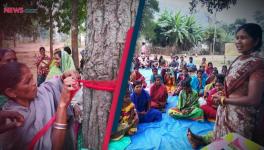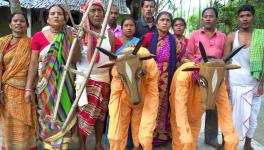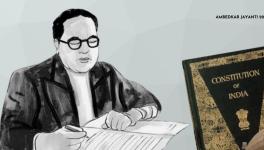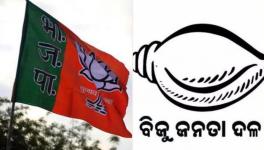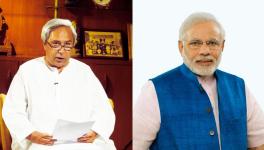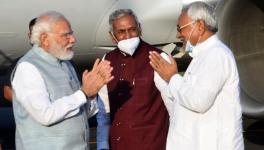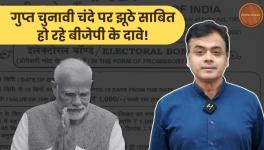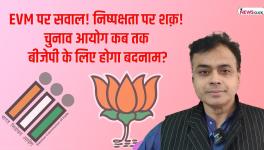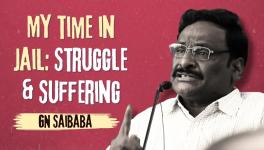Delays and Adjournments have Marred Babri Masjid Demolition Case, but Who will a Judgement Benefit?
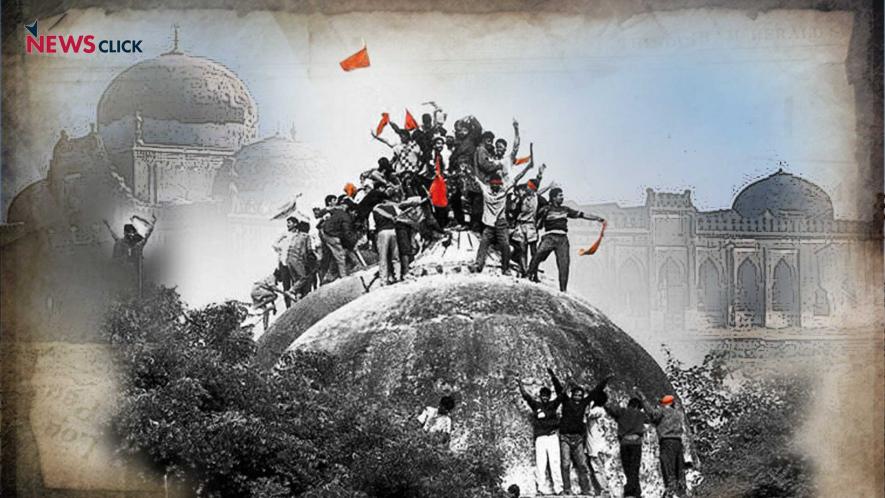
In most countries, when the highest court of the land sets the 'final' deadline for a lower court to pass verdict on a decades-old case involving desecration of a shrine, public reaction would typically be one of guarded delight and relief. Joy because the directive would raise hope of the desecrators being brought to book. Relief because a ghost from the past would finally be laid.
But when the Indian Supreme Court on May 8 ordered the Special Judge in Lucknow, S.K. Yadav, to deliver by August 31, the judgement in the 1992 Babri Masjid demolition case involving Bharatiya Janata Party and Sangh Parivar veterans Lal Krishna Advani, Murli Manohar Joshi, Uma Bharti, Kalyan Singh, Sadhvi Rithambara, Brij Bhushan Singh and Sakshi Maharaj and others, the directive did not generate exhilaration or cautious satisfaction for two reasons. Before elaborating, it needs mentioning that other high-profile accused – Bal Thackeray, Giriraj Kishore, Ashok Singhal and Vishnu Hari Dalmia died – during trial and proceedings against them had to be abated.
The first reason of course, stems from the cynicism accumulated since December 1992, when the cases were first initiated, because of the repeated delays and orchestrated hurdles in ensuring that justice was delivered. It is difficult to fault the belief that once again, days before the deadline, the verdict would be pushed back once again.
The second reason for the care a hang response to the order of the two- judge bench comprising Justices R.F. Nariman and Surya Kant, is that after last November's verdict on the main title case, few expect the Special Judge to find the accused guilty of criminal conspiracy to demolish the Babri Masjid. After all, the 'unanimous' verdict of the five judges led by then Chief Justice of India and now Rajya Sabha nominated member, Ranjan Gogoi, was faulted by legal experts and commentators alike. While one termed it a setback to property and evidence law, another said the judges had "unanimously placed a seal of judicial approval on the destruction of a mosque."
Despite these doubts for which a reasonably political basis exists, there is no reason to overlook the way Supreme Court in its final verdict of November 9, 2019, described the demolition of the Babri Masjid. The judgement read: "The destruction of the mosque took place in breach of the order of status quo and an assurance to this Court. The destruction of the mosque and the obliteration of the Islamic structure was an egregious violation of the rule of law."
Can the Special Judge overlook the apex court's ruling and not declare anyone 'not guilty' in the Babri Masjid demolition case? If it does, the question will forever remain – who committed this "egregious violation of the rule of law?" On a previous occasion in 2010, and in relation to another case pertaining to the Ayodhya dispute, a two-judge bench comprising Justices P.C. Ghose and R.F. Nariman called it a "crime which shook the secular fabric of India."
Significantly, doubts have already been raised if the Special Judge will be able to wrap up recording of evidences and hearing of the applications that were filed in the course of trial proceedings by the deadline set by the apex court. The prosecution and defence lawyers have concurred that it shall be "extremely challenging" to complete hearing before August 31.
Their argument is that the proceedings were long drawn out even during in-court hearings and it would get more time-taking in the event that the judge chooses to continue hearing the matter on video. The Special Court in Lucknow had been holding day-to-day hearings since April 19, 2017, under directions from Supreme Court which also restored the conspiracy charge against the political stalwarts named above. Very importantly, in this judgement, the top court also clubbed the two separate criminal cases being heard by separate courts in Lucknow and Rae Bareli courts. The apex court established a separate Special Court (Ayodhya Prakaran) and based it in Lucknow. Importantly, hearings are at a standstill since the imposition of nationwide lockdown.
Although the top court directed that the Special Court must complete hearing and deliver its verdict in two years, the deadline of April, 2019, passed unnoticed. Eventually, on July 19, 2019, the SC took up the matter and set a fresh deadline – another nine months – for the judgement. This date too (April 19, 2020) passed during the lockdown and the Supreme Court looked into the issue only after the Special Judge wrote a letter on 6 May seeking more time.
Interestingly, Yadav was due for retirement in September 2019 and in July last, the apex court also directed the Uttar Pradesh government to grant him a six-month extension to complete proceedings in the case. The judge's tenure will have to be extended once again failing which he, like a stickler rightly, shall not continue hearing because he will legally not have locus standi if his tenure is over.
From the beginning, this case(s) was always secondary to the main title suit. Peculiarly, although the demolition was a singular act, two separate FIRs were filed on that day by the Uttar Pradesh police – FIR 197 and FIR 198. Both FIRs were lodged soon after the demolition on December 6, 1992. But, while the first was against numerous unnamed karsevaks, alleging offences of dacoity, robbery, causing hurt, injury/defiling places of public worship, promoting enmity between two groups on grounds of religion, metcetera, the second was lodged against eight persons – LK Advani, Ashok Singhal, Vinay Katiyar, Uma Bharti, Sadhvi Rithambara, Murli Manohar Joshi, Giriraj Kishore and Vishnu Hari Dalmia. These leaders were accused of a conspiracy to demolish the mosque.
For much of the period, the two cases were not heard regularly at Rae Bareli or Lucknow due to repeated adjournments because the accused or witnesses did not appear. A fair amount of time was also taken by developments in between which caused matters to go back and forth between various courts. For instance, Advani was provided a brief reprieve in September 2003 when the special court in Rae Bareli discharged him in case No. 198 while ordering framing of charges against the remaining accused. He was then the Deputy Prime Minister. This order was however challenged and the Allahabad High Court in 2005 eventually reversed it and ordered reframing of charges against the senior BJP leader, which took further time of the court.
For much of the period since 1992, the criminal cases have continued in a shambolic manner and few expected that justice would be ever delivered. In the interim the Justice Liberhan Commission also continued its parallel judicial examination of the demolition. It too continued getting extension after extension – 48 times before eventually submitting its report to Prime Minister Manmohan Singh in June 2009.
It requires recalling that Justice Liberhan in his report wrote that it "cannot be assumed even for the moment that L.K. Advani, A.B. Vajpayee or M.M. Joshi did not know of the designs of the sangh parivar." He added that the BJP "was an essential element in the Parivar smorgasbord and essential to capture de jure power and authority, in furtherance of its goals of establishing Hindu Rashtra".
Whenever the Special Judge delivers his judgement, whatever be his conclusion, it certainly shall stir the political pot. The act of the demolition of the Babri Masjid is glorified in the Hindutva narrative. If the judge finds the accused guilty of the charges, it would be politically inconvenient for the current leadership as it will bring marginalised party veterans into the spotlight once again.
If some of the accused are held guilty and others are acquitted of the charges, it has the potential to create a rift within the clan. And, if the cases are dismissed and all accused are discharged, political opponents of the BJP and its affiliates will get another opportunity to take potshots. Whichever way the dice rolls in the Babri Masjid demolition cases, political turbulence appears on the anvil.
The writer is an independent journalist based in Delhi. The views are personal.
Get the latest reports & analysis with people's perspective on Protests, movements & deep analytical videos, discussions of the current affairs in your Telegram app. Subscribe to NewsClick's Telegram channel & get Real-Time updates on stories, as they get published on our website.










